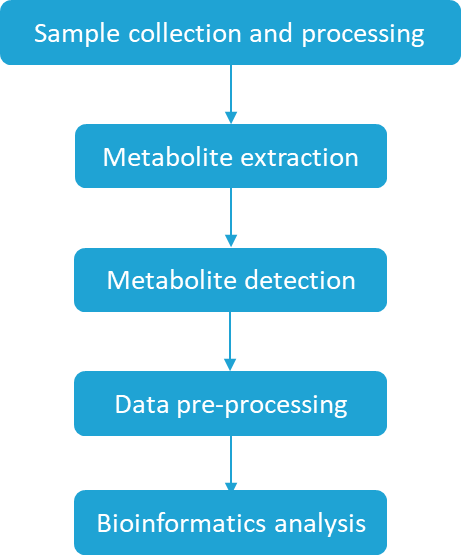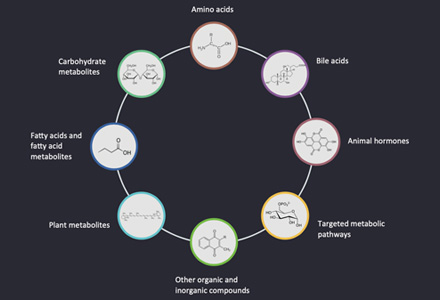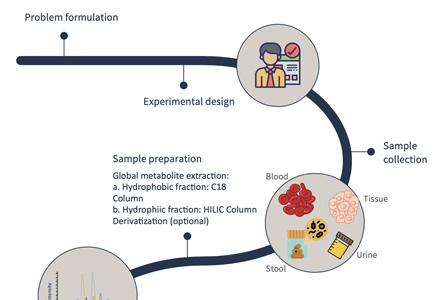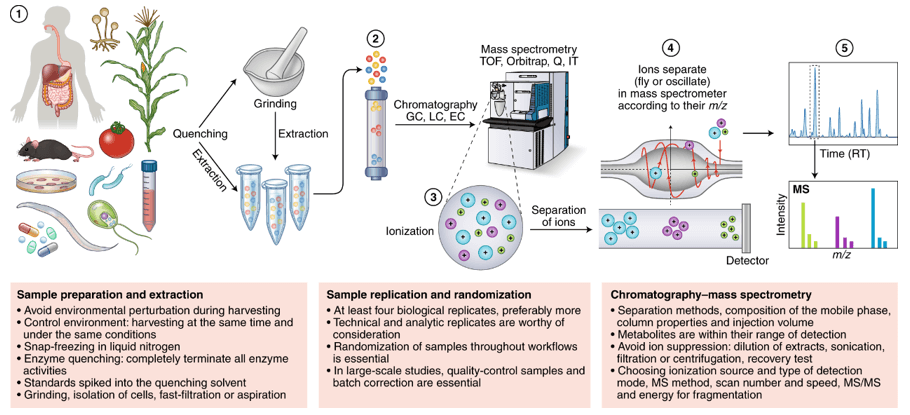Soil Metabolomics Analysis Services
Soils play an important role in the global carbon cycle. The molecular composition of soil organic matter (SOM) is still unknown. The molecular composition of soil organic matter is the basis for studying the structure of terrestrial microbial communities and the dynamics of the carbon cycle. This information can be used to understand and predict the role of terrestrial ecosystems in climate change, for example by understanding the instability of SOM and its link to microbial activity.
Soil metabolomics (soilomics) is a metabolomic approach to study the changes in organic matter and soil microbial metabolic content and interactions in soils. Soil microorganisms are indispensable components of soil, decomposers and regulators in terrestrial ecosystems, and can participate in the material cycle and energy flow of ecosystems. Their distribution and activity reveal the change pattern and evolution trend of soil.
Metabolites in soil are mainly derived from plant inter-root secretions and the degradation of organic matter by microorganisms. The metabolic activities of soil microorganisms play a vital role in the processes of decomposition of biological residues, soil structure formation, organic matter transformation, and degradation of toxic substances. Studying the functional characteristics of soil microbial carbon metabolism can provide an understanding of microbial diversity and its carbon metabolism capacity, and provide an important reference for exploring the regulation, control and improvement of soil environmental quality.
Creative Proteomics uses untargeted metabolomics approach to analyze the metabolic profile of small molecules in soil with high throughput and high sensitivity. It can also be combined with multi-omics tools such as high-throughput sequencing of the soil microbiome, which helps to study changes from microbial community structure and function to metabolic pathways. In addition, we can also provide targeted metabolomics strategies to qualitatively and quantitatively detect compounds and accelerate the progress of related research.
Types of metabolites that can be analyzed include but are not limited to
| Categories of metabolites | Specific metabolites |
| Carboxylic acids and derivatives | Maltose, Betaine, Creatinine, Ornithine, Gamma-aminobutyric acid, Stachydrine, Allantoic acid, Citrate, Maleic acid… |
| Fatty Acyls | Acetylcarnitine, Pantothenol, Erucic acid, Myristic acid... |
| Benzene and substituted derivatives | Acetylsalicylic acid, Menthyl salicylate, Pyrimethanil, Aniline, Cearoin... |
| Organonitrogen compounds | Carnitine, N-octadecylamine, Porphobilinogen... |
| Organic oxygen compounds | Sucrose, Xylitol, N-glycolylneuraminic acid, Aloesin.... |
Process of Analysis

Deliverables
- Experimental procedure
- Parameters of liquid chromatography / gas chromatography and MS
- MS raw data files and MS data quality checks
- Bioinformatics analysis report
Turnaround time: 1-6 weeks
Data Analysis
| Analysis Type | Analysis Content |
| Quality Control | TIC, QC and others |
| Profile Analysis | Superclass category |
| Variance Analysis | Univariate statistical analysis (volcano plots, etc.) |
| Multidimensional statistical analysis (PCA, PLSDA, OPLSDA, etc.) |
| Functional Analysis | Hierarchical cluster analysis |
| Correlation analysis |
| KEGG analysis |
| Advanced Analysis | WGCNA analysis |
| Regression analysis |
| Trend clustering analysis |
Creative Proteomics will work with you to customize a solution to meet the specific needs of any project. If you would like to test for other metabolites that are not found, you can contact us and one of our technicians will communicate with you.
For Research Use Only. Not for use in diagnostic procedures.





